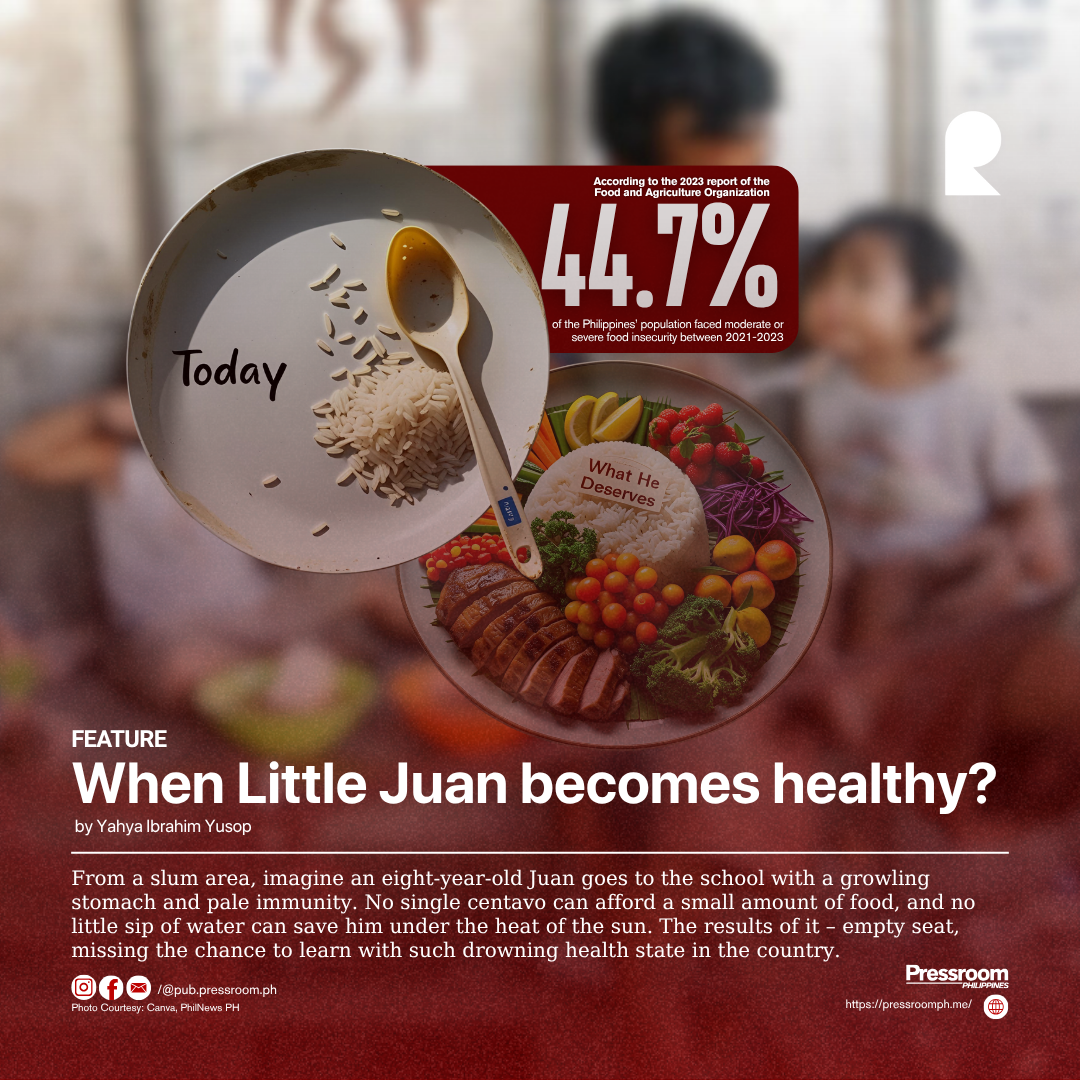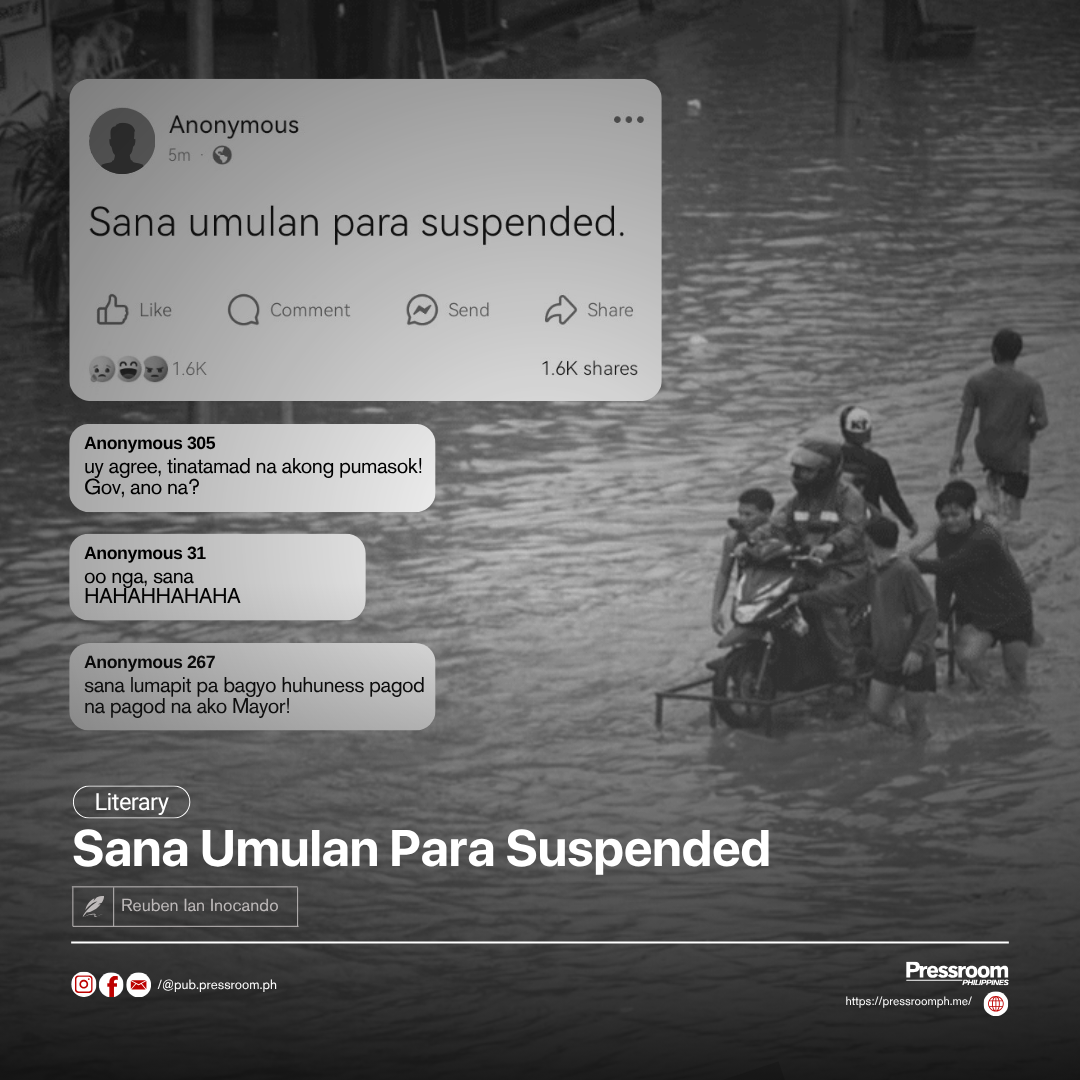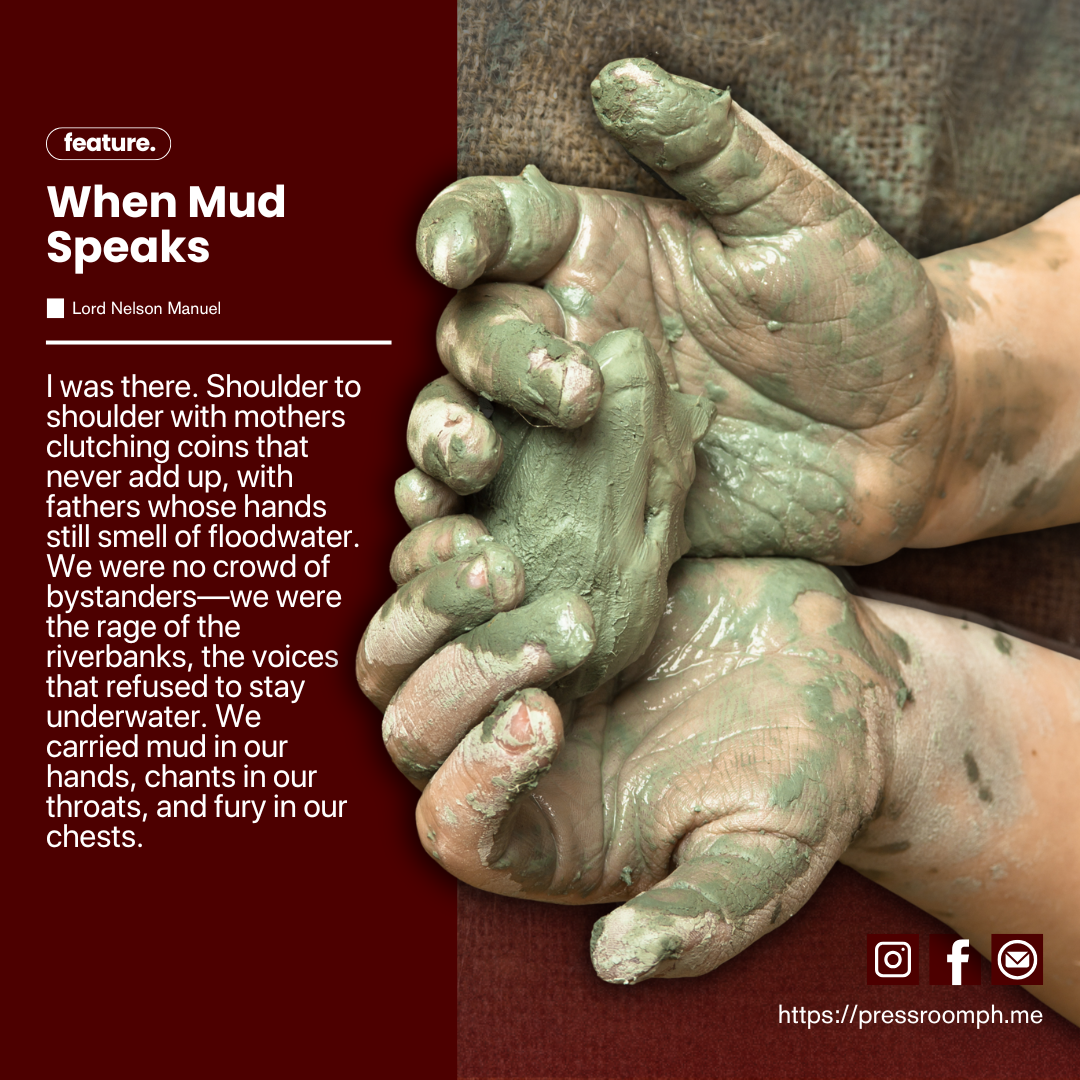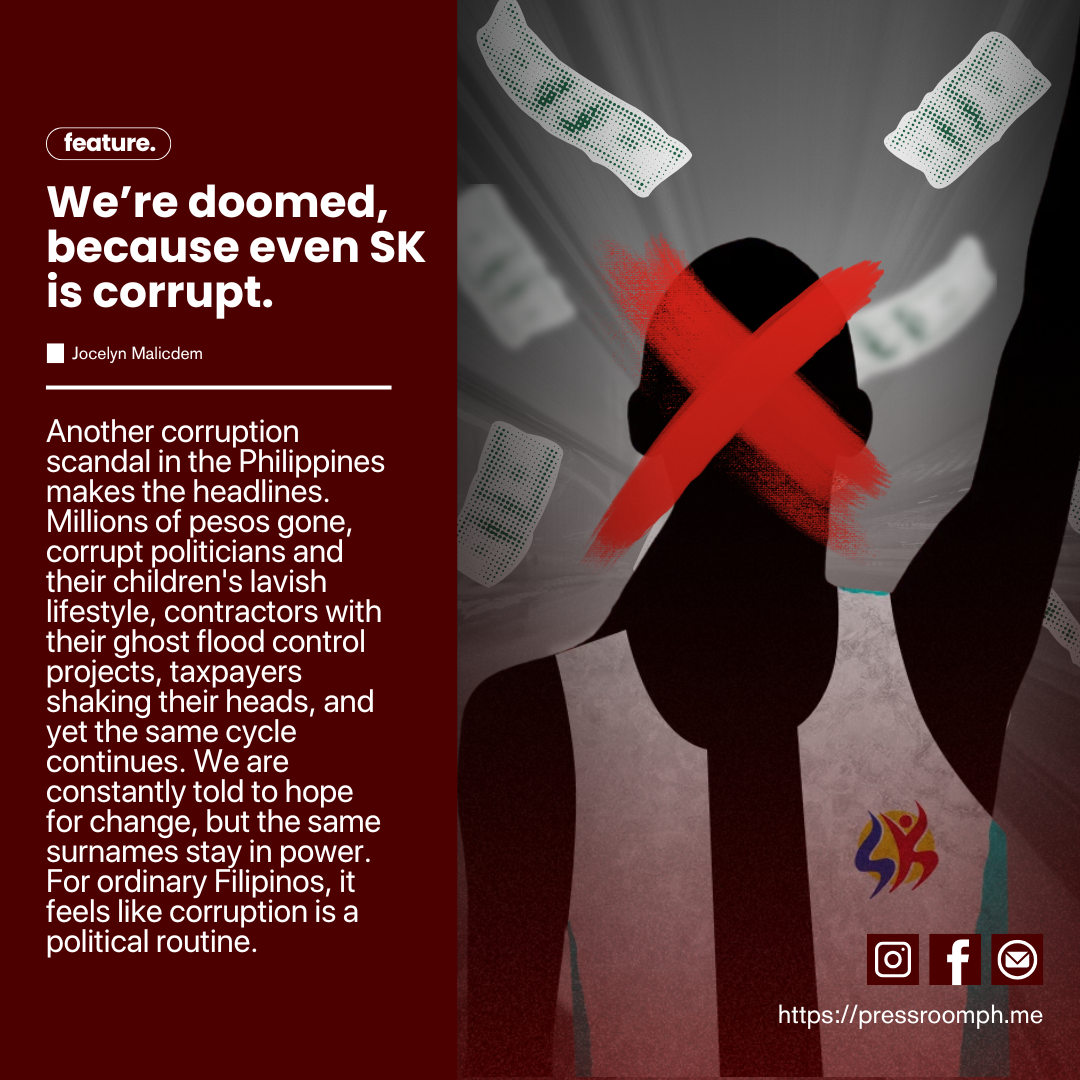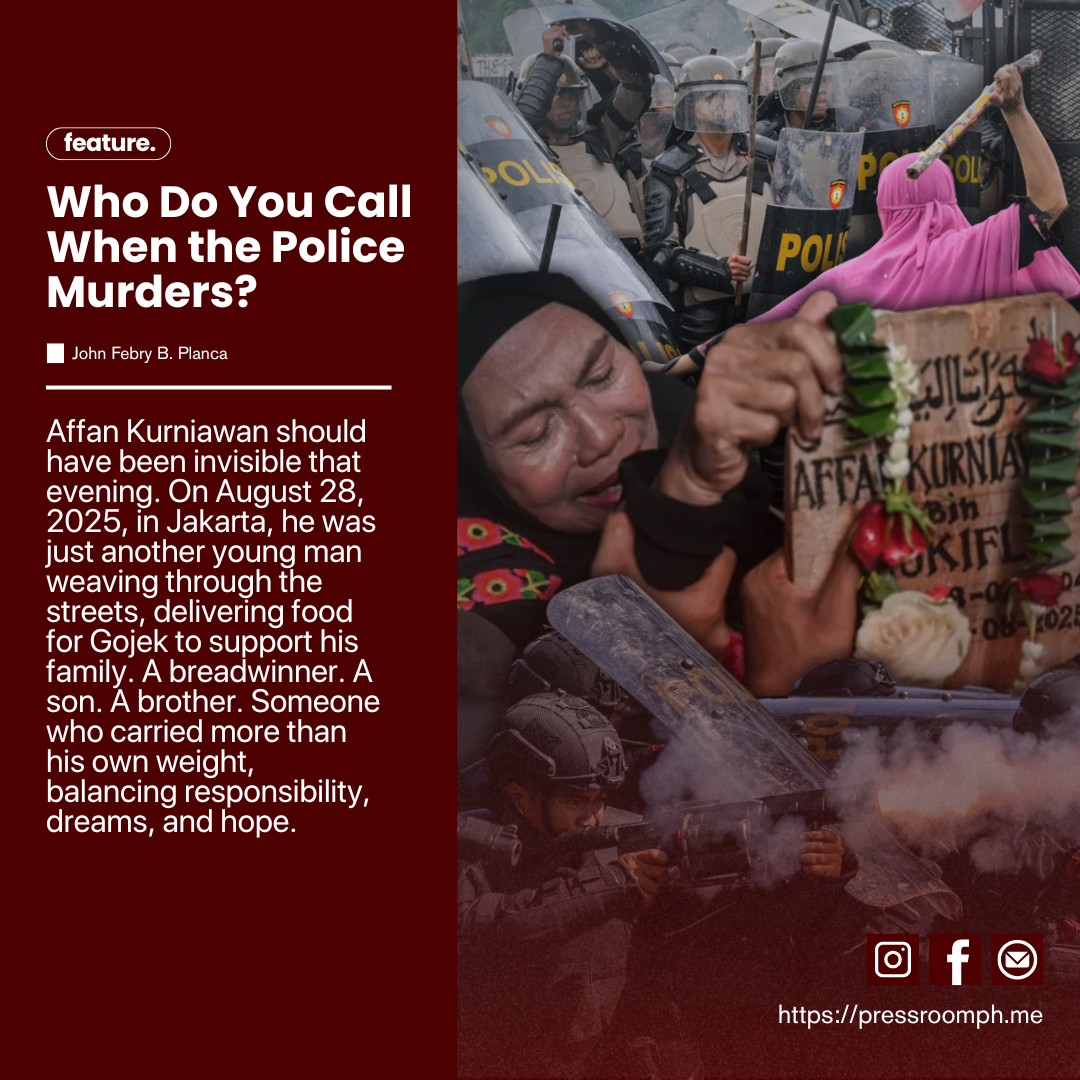𝘃𝗶𝗮 𝗬𝗮𝗵𝘆𝗮 𝗜𝗯𝗿𝗮𝗵𝗶𝗺 𝗬𝘂𝘀𝗼𝗽, 𝗣𝗿𝗲𝘀𝘀𝗿𝗼𝗼𝗺 𝗣𝗛
From a slum area, imagine an eight-year-old Juan goes to the school with a growling stomach and pale immunity. No single centavo can afford a small amount of food, and no little sip of water can save him under the heat of the sun. The results of it – empty seat, missing the chance to learn with such drowning health state in the country.
Like Juan, there are children out there who cannot eat thrice a day, who do not know the taste of different fruits and vegetables, and who might catch an illness without his knowledge. Even though there are those who smell awful and look unpleasant, it hits the irony of ideal Filipino children who meet expected health and nutrition standards.
𝗕𝗲𝗵𝗶𝗻𝗱 𝗟𝗶𝘁𝘁𝗹𝗲 𝗝𝘂𝗮𝗻’𝘀 𝘂𝗻𝗵𝗲𝗮𝗹𝘁𝗵𝘆 𝘀𝘁𝗮𝘁𝗲
His parents are unemployed, raising eleven other children at young ages. Hopefully to earn a source of income by cockfighting, his parents’ earnings cannot buy a variety of fruits and vegetables, even rice and meat, due to inflation. To relieve themselves, Juan and his family can only afford to consume little servings of rice and meals thrice a week.
Their hut in the middle of the slumming area places most of the mosquitos and garbage. Their insufficient source of water and sanitation area worsens the hygiene of Juan and his entire family. Juan, in general, is a very unlikeable child to be with everywhere.
𝗦𝗲𝗲𝗺𝗶𝗻𝗴𝗹𝘆 𝗶𝗺𝗽𝗼𝘀𝘀𝗶𝗯𝗹𝗲, 𝘀𝗲𝗲𝗺𝗶𝗻𝗴𝗹𝘆 𝗽𝗼𝘀𝘀𝗶𝗯𝗹𝗲
With these situations of Little Juan, he is falling behind other children for sure. Being absent in class, being bullied for lapses and lacks in health and nutrition, and being doubted of his existence. Like no hope lies in his hand and his family, who struggle for security and the worth of their health and well-being, they thought that circulates their lives for a long time.
Not until the group of individuals where they live offer backyard gardening, family planning, grocery and business packages for them and other neighboring families. Not only the school where Juan studies provide health education and application of basic hygiene skills, nutrition and sanitation knowledge, and free health break meals for him and other struggling children.
All he believes is that he gradually escapes the health challenging state towards himself and his family. He can say that he is healthy and secured to survive – he is actually living in those ways with the help and support of the government and community leaders.
Yet, he is all in his thoughts and wishes to experience. He is still thin, unstable, and his family is still in the same state brought by lack of government funds and supports, corruptions, and worse, inattention to health wellbeing of children. And he is asking when he will become totally healthy – when the country is continuing this shortcoming despite the promise to food and nutrition security and priority?
